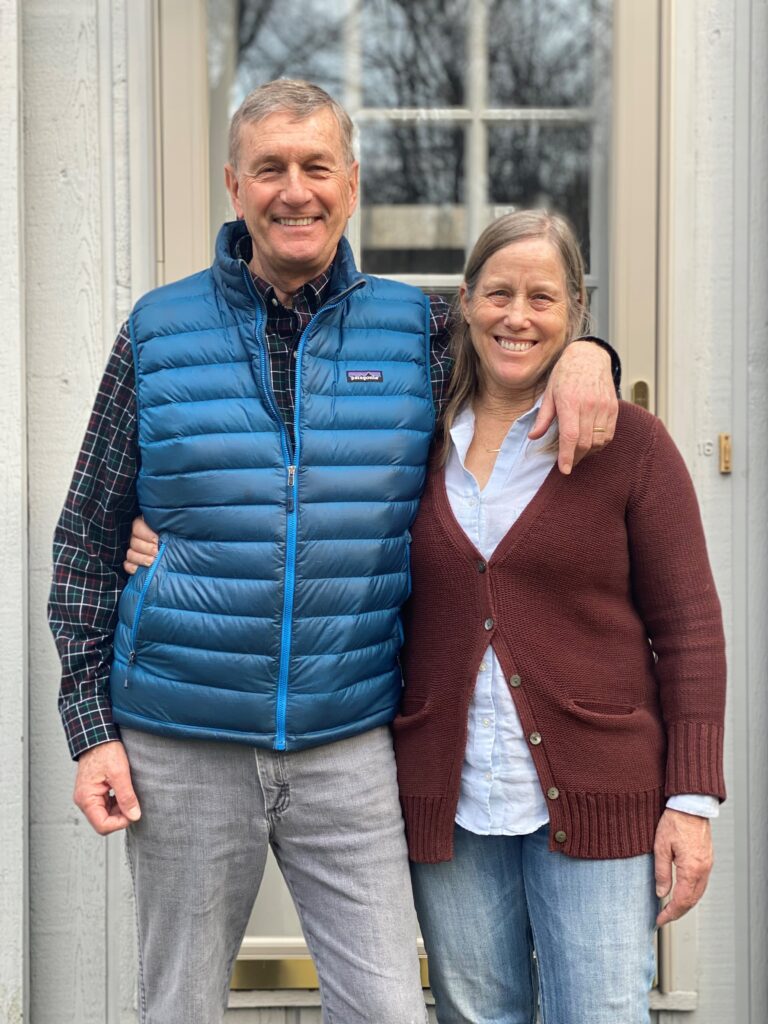Rod Jacobsen ’73, P’17

DEGREES
B.A. in English; M.A. in English education at Stanford University; “This past summer I returned to celebrate my 50th Reunion and Trinity’s Bicentennial. I was so happy to have attended.”
JOB TITLES
Volunteer mentor, National Kidney Donation Organization; staff volunteer; Person-to-Person; former independent school teacher
FAVORITE TRINITY MEMORY
My father, a local Hartford lad, graduated from Trinity in 1942. He often regaled me with stories from a very different time and institution, and when I decided to attend, he strongly recommended that I take a few courses with George Cooper, a legendary historian (his specialty was British history) who had just arrived at Trinity, fresh from his Ph.D., and was still teaching throughout my years at school. When my dad came to campus for a visit, probably during my sophomore year, I arranged for the three of us to have a chat (more like an audience, I think) in Dr. Cooper’s office in Seabury. Seeing my father, a very sentimental man, to be sure, so happy to relive his past and enjoy such a moment through our mutual professor was gratifying and special.
What did you do in your teaching career?
[I spent most of it at] a boarding school, where we stayed for 30 years. I taught English, drama, journalism, and global studies. I also directed many plays and musicals and did some coaching. I also acted as chair of the English Department and dean of faculty. I retired in 2000.
Where do you focus your volunteer efforts?
My wife and I work in the food pantry and distribution center of Person-to-Person in Norwalk, Connecticut. Since my kidney donation, I am a volunteer mentor for the National Kidney Donation Organization. We offer our services as a key part of the network of transplant centers working in conjunction with the National Kidney Registry, which matches patients suffering from end-stage renal disease with prospective donors: family, friends, or acquaintances of the recipients or, as in my case, “non-directed” donors who give one of their kidneys to a stranger in need who is a “close match.” I am assigned three new prospective kidney donors each week, and I contact them to offer information about the process of donation, including comprehensive testing, psychological screening, preparation for surgery, the surgery itself, and recovery.
What led you to make a living kidney donation?
In my final year of teaching, one of my English students did her senior project on living kidney donation. As I read through her notes, I learned about the prevalence of kidney disease, the profound discomfort of dialysis, the intricacies involved in transplantation, and the sad facts pertaining to those on the transplant waiting list who die before a donor is found. I felt rather embarrassed to be so ignorant of the problem, and the more I learned, the more curious I became about living donation. After extensive tests and examinations, I was matched with a recipient who had been quite ill for five years and was a near-perfect match. On April 13, 2021, my left kidney was removed and sent to a transplant center in Denver. I ultimately learned my recipient’s identity, and last year my wife and I met him and his wife. My transplanted kidney is working beautifully, and both of us are in excellent health.
How did your time at Trinity prepare you for your life?
At Trinity I learned how to study. I met several students who had better skills and habits than I, and I was wise enough to follow their lead after a fairly disastrous first semester. Dave Barnes ’73 and I were roommates sophomore and senior years, and watching him take notes was a revelation for me (I spent my junior year abroad in Kampala, Uganda, where I studied African traditional religion and philosophy; that year changed my life forever). Dave and I are still best friends, and he is still teaching me. My peer group (the aptly named “Seabury Giants”) was an eclectic group, and living with them for two years prepared me for the future in myriad ways. Compartmentalizing my approach to academic, athletic, and social activities (prioritizing responsibilities and fun) showed me that I could thrive in college, and I am indebted to those who helped me organize my life and who taught me the meaning of intimate friendship. The skills I learned carried over to my teaching, to be sure. I was rather apolitical when I came to Trinity, but when the traumatic national events occurred in the spring of 1970, my peers and I were thrust into a world that suddenly seemed in need of profound change. Kent State and its aftermath, the Vietnam War, and a general sense of cultural awakening galvanized us, and the College was supportive as students became central leaders in the area’s protest movements. My freshman roommate, Dave Roochnik ’73, who told me early on in our friendship that he was “practically born on a picket line,” and several seniors took me under their wing and helped me see our responsibility as citizens to fight against injustice and inequity, and I believe their mentorship reoriented me toward a career in teaching and volunteering.
To read more about living donation, please visit the National Kidney Registry (www.kidneyregistry.org) and National Kidney Donation Organization (www.nkdo.org)
